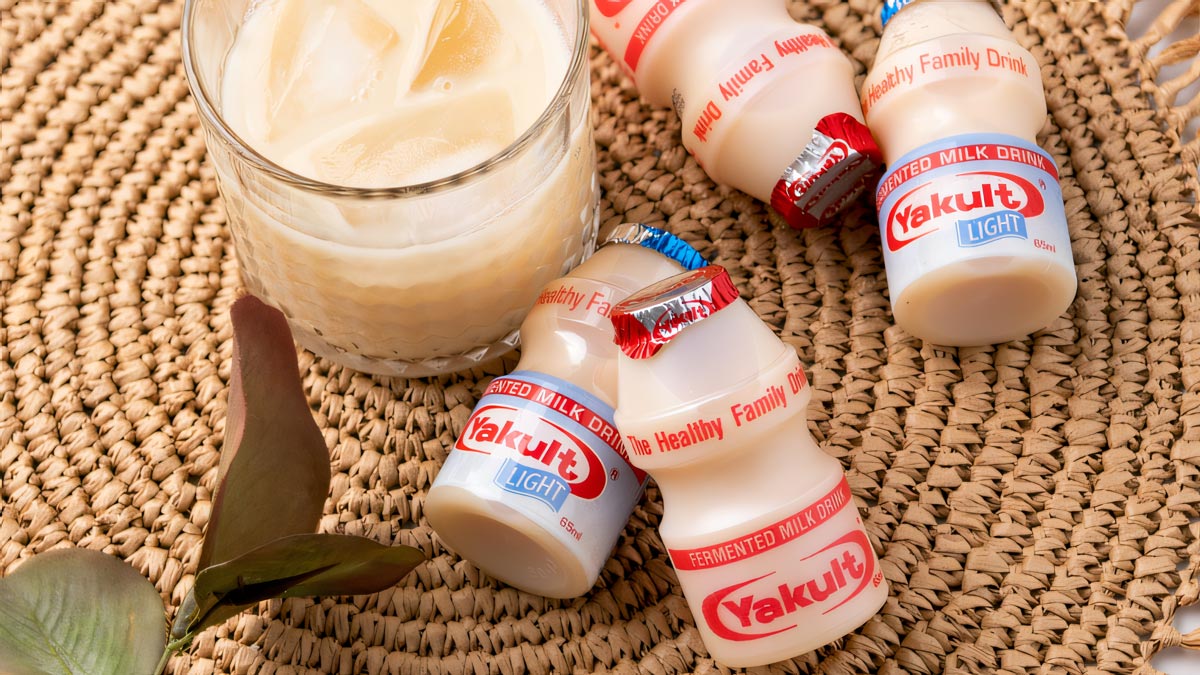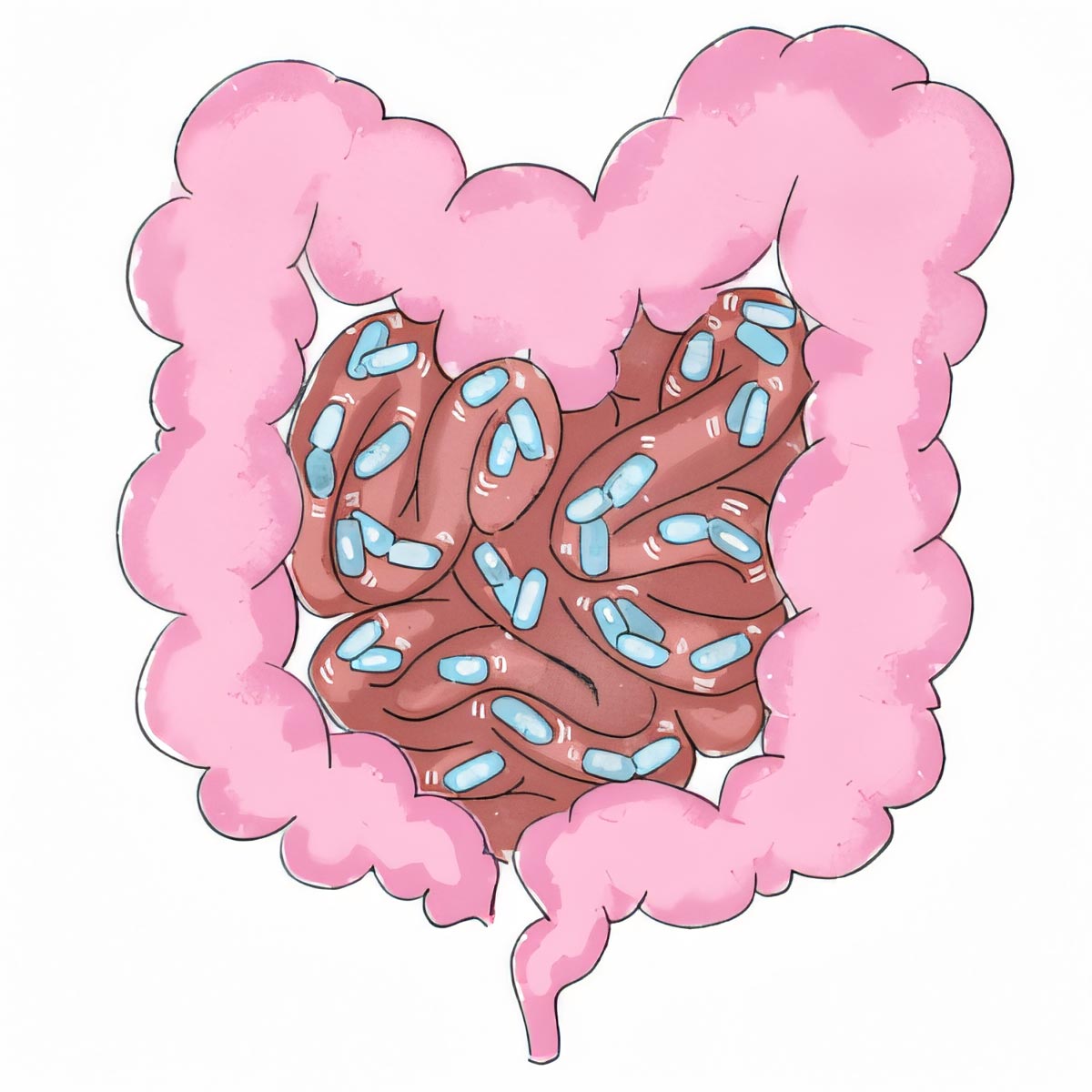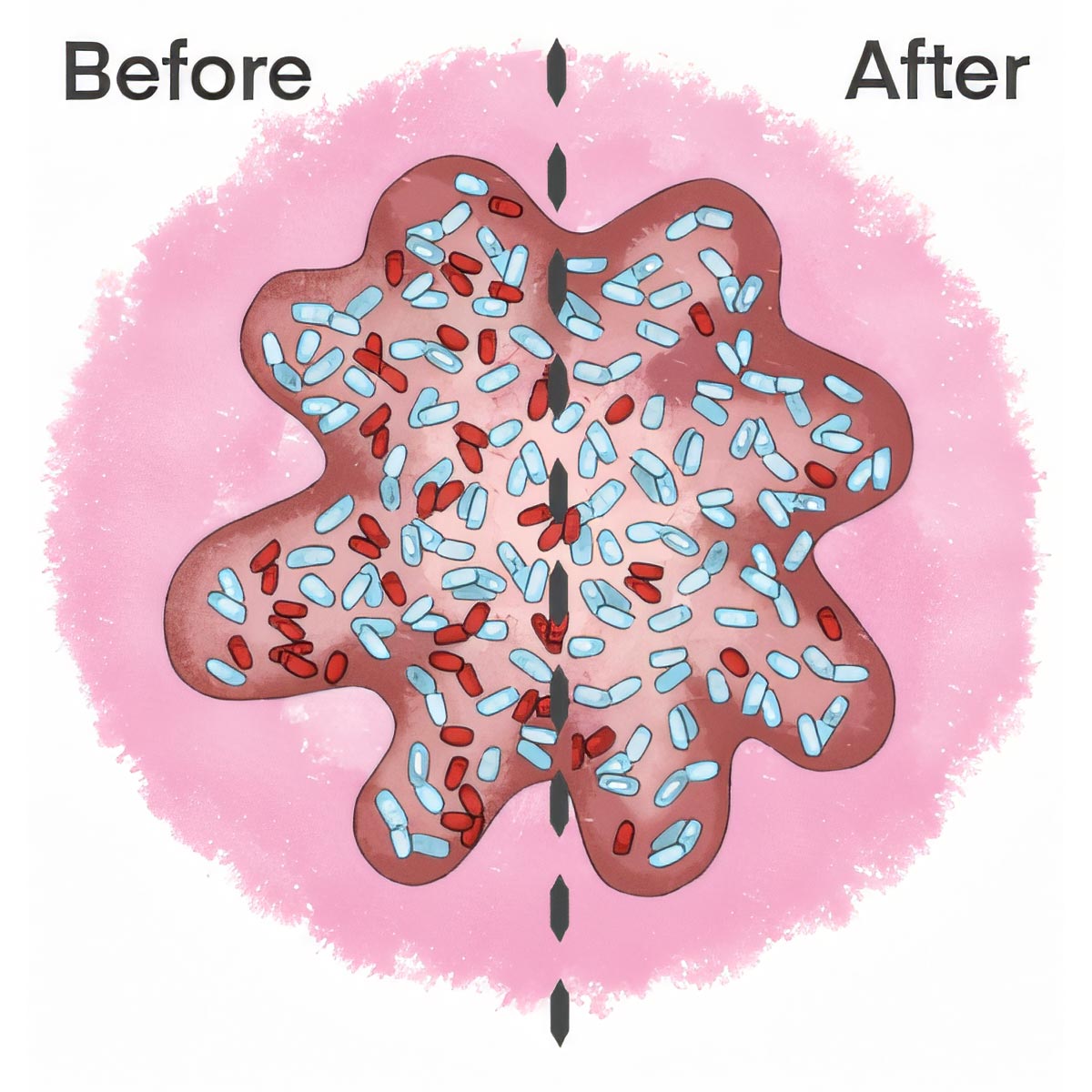养乐多益处

经由健康食品认证的益生菌功效
益生菌是活的微生物,当以足够的量摄入时,能够带来健康益处。(1) 然而,并非所有菌株的益生菌都具有一样的功效!
识别益生菌,可以通过它们名称的3部分,即属、种和菌株来鉴别。 例如:

不同的益生菌所带来的益处不尽相同。这也意味着,即便是具备相同属种的益生菌,只要它们的菌株不一样,功效就不能被笼统地划等号。
养乐多中的副干酪乳杆菌代田株(简称LcS)有何独特之处?
养乐多是世界上唯一含有副干酪乳杆菌代田株(LcS)的产品。
有超过90年的科学研究佐证LcS的益处和功效,主要包括:

LcS能通过胃酸胆盐的考验,并活着到达肠道 ,这一点对于LcS发挥功效至关重要。

LcS能够积极改变和增加肠内有益菌的总量。

LcS令肠道蠕动正常, 改善排便状况。
养乐多中独有的益生菌LcS可以实现消化平衡和肠道健康, 得益于以下三大特点:
1
LcS能够通过胃酸胆盐的考验,活着到达肠道 ,这一点对于LcS发挥功效至关重要。
大量研究已证实,LcS能够保持活性通过胃肠道。对比人群大便实验发现,与未饮用养乐多的人相比,饮用者大便中含有显著的LcS数量(3-9)。
2
LcS通过增加肠内有益菌的总量来改善肠道菌群平衡。
许多研究发现,Lcs通过增加有益菌的总量和菌群多样性,同时抑制潜在有害菌,来改善肠道微生物群。在规律饮用养乐多的受试者体内,有益菌数量持续增加。当饮用停止后,肠道微生物群在一个月内恢复到基线状态(7,10-15)。
3
LcS改善肠道蠕动,促进规律排便。
研究表明,LcS能够积极影响排便频率和大便品质。经历硬结便秘的受试者在大便品质方面有所提升,而软便腹泻者则表现出排便频率的改善。此外,与未饮用养乐多的人相比,饮用者中出现理想状态大便(根据布里斯托大便分类法:香肠状且易排出)的比例大幅增加(7,16-18)。
为什么要每天饮用养乐多?
想要体验养乐多的健康效益,坚持是关键!
益生菌不会长期停留在肠道中,因此,建议每天饮用一瓶养乐多。
每天饮用养乐多,持续至少2-3星期,并配合均衡的饮食,以获得和维持LcS的效益。

参考文献
- Hill, C. et al. Expert consensus document. The International Scientific Association for Probiotics and Prebiotics consensus statement on the scope and appropriate use of the term probiotic. Nat. Rev. Gastroenterol. Hepatol. 11, 506–514 (2014).
- National Institutes of Health. Probiotics: What you need to know. Office of Dietary Supplements. U.S. Department of Health and Human Services. Available from: https://ods.od.nih.gov/factsheets/Probiotics-Consumer/
- Nagata S, Asahara T, Ohta T, et al. Effect of the continuous intake of probiotic-fermented milk containing Lactobacillus casei strain Shirota on fever in a mass outbreak of norovirus gastroenteritis and the faecal microflora in a health service facility for the aged. Br J Nutr. 2011; 106(4):549-56.
- Cox AJ, Makino H, Cripps AW, et al. Recovery of ‘Lactobacillus casei’ strain Shirota (LcS) from faeces with 14 days of fermented milk supplementation in healthy Australian adults. Asia Pac J Clin Nutr. 2019; 28(4):734-9.
- Utami T, Cahyanto MN, Juffrie M, et al. Recovery of Lactobacillus casei strain Shirota (LCS) from the intestine of healthy Indonesian volunteers after intake of fermented milk and its impact on the enterobacteriaceae faecal microbiota. Int J Probiotics Prebiotics. 2015; 10(2/3):77.
- Truong MT, Duong VH, Trinh TTV, et al. Recovery of Lactobacillus casei strain Shirota (LcS) from the intestine of healthy Vietnamese adults after intake of fermented milk. Asia Pac J Clin Nutr. 2017; 26(1):72-7.
- Matsumoto K, Takada T, Shimizu K, et al. Effects of a probiotic fermented milk beverage containing Lactobacillus casei strain Shirota on defecation frequency, intestinal microbiota, and the intestinal environment of healthy individuals with soft stools. J Biosci Bioeng. 2010; 110(5):547-52.
- Spanhaak S, Havenaar R, Schaafsma G. The effect of consumption of milk fermented by Lactobacillus casei strain Shirota on the intestinal microflora and immune parameters in humans. Eur J Clin Nutr. 1998; 52(12):899-907.
- Matsumoto K, Takada T, Shimizu K, et al. Effects of a probiotic fermented milk beverage containing Lactobacillus casei strain Shirota on defecation frequency, intestinal microbiota, and the intestinal environment of healthy individuals with soft stools. J Biosci Bioeng. 2010; 110(5):547-52.
- Nagata S, Asahara T, Wang C, et al. The Effectiveness of Lactobacillus Beverages in Controlling Infections among the Residents of an Aged Care Facility: A Randomized Placebo-Controlled Double[1]Blind Trial. Ann Nutr Metab. 2016; 68(1):51-9.
- Nagino T, Kaga C, Kano M, et al. Effects of fermented soymilk with Lactobacillus casei Shirota on skin condition and the gut microbiota: a randomised clinical pilot trial. Benef Microbes. 2018; 9(2):209-18.
- Spanhaak S, Havenaar R, Schaafsma G. The effect of consumption of milk fermented by Lactobacillus casei strain Shirota on the intestinal microflora and immune parameters in humans. Eur J Clin Nutr. 1998; 52(12):899-907.
- Aoyagi Y, Amamoto R, Park S, et al. Independent and Interactive Effects of Habitually Ingesting Fermented Milk Products Containing Lactobacillus casei Strain Shirota and of Engaging in Moderate Habitual Daily Physical Activity on the Intestinal Health of Older People. Front Microbiol. 2019; 10:1477.
- Shima T, Amamoto R, Kaga C, et al. Association of life habits and fermented milk intake with stool frequency, defecatory symptoms and intestinal microbiota in healthy Japanese adults. Benef Microbes. 2019; 10(8):841-54.
- Kato-Kataoka A, Nishida K, Takada M, et al. Fermented Milk Containing Lactobacillus casei Strain Shirota Preserves the Diversity of the Gut Microbiota and Relieves Abdominal Dysfunction in Healthy Medical Students Exposed to Academic Stress. Appl Environ Microbiol. 2016; 82(12):3649-58.
- Sakai T, Makino H, Ishikawa E, et al. Fermented milk containing Lactobacillus casei strain Shirota reduces incidence of hard or lumpy stools in healthy population. Int J Food Sci Nutr. 2011; 62(4):423-30.
- Van den Nieuwboer M, Klomp-Hogeterp A, Verdoorn S, et al. Improving the bowel habits of elderly residents in a nursing home using probiotic fermented milk. Benef Microbes. 2015; 6(4):397- 403.
- Tilley L, Keppens K, Kushiro A, et al. A probiotic fermented milk drink containing Lactobacillus casei Strain Shirota improves stool consistency of subjects with hard stools. Int J Probiotics Prebiotics. 2014; 9